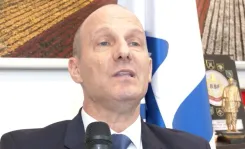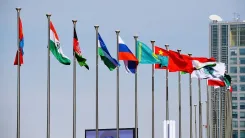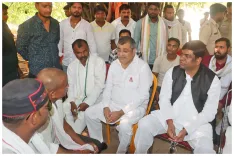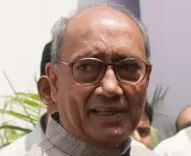What Steps is South Korea Taking to Prevent Anti-Pyongyang Leaflet Launches?

Synopsis
In a bold move, South Korean President Lee Jae-myung has ordered urgent measures to stop the launch of anti-Pyongyang leaflets. This initiative follows recent tensions and aims to enhance border safety while promoting dialogue with North Korea. Can these efforts truly reshape relations on the Korean Peninsula?
Key Takeaways
- President Lee Jae-myung takes measures to prevent anti-Pyongyang leaflet launches.
- The government emphasizes the need for border safety and reduced military tensions.
- Dialogue with North Korea is a priority for the current administration.
- Concerns remain about North Korea's willingness to engage in dialogue.
- The June 15 Declaration is a key milestone for future relations.
Seoul, June 14 (NationPress) South Korean President Lee Jae-myung issued an order on Saturday aimed at developing strategies to prevent the dissemination of anti-Pyongyang leaflets near the North Korean border. This directive came in response to reports indicating that a civic organization had released anti-Pyongyang leaflets from Ganghwa Island in Incheon, located to the west of Seoul, earlier that same day, as stated by presidential spokesperson Kang Yu-jung in a written briefing.
According to Kang, the government has previously asserted that the illegal distribution of anti-Pyongyang leaflets must cease, as it poses risks to the safety of residents in border regions and could heighten military tensions on the Korean Peninsula. She emphasized that the government regards such violations with utmost seriousness.
Kang cautioned that there would be “stern measures” taken against those responsible for such actions, as reported by Yonhap news agency.
A comprehensive discussion regarding strategies to combat the launch of anti-Pyongyang leaflets is set to take place on Monday.
Earlier in the week, Lee had tasked relevant government agencies with formulating measures to counter these launches.
On Thursday, President Lee Jae-myung expressed his commitment to swiftly restore dialogue with North Korea, following his country's decision to cease loudspeaker broadcasts against the North, marking his initial step to alleviate tensions.
During a speech commemorating the 25th anniversary of the 2000 inter-Korean summit, Lee pledged to “stop the exhausting hostilities” with North Korea and to resume inter-Korean dialogue and cooperation.
He stated, “We will promptly restore a crisis management system that prevents accidental clashes and mitigates escalating tensions.”
Lee further mentioned the need to quickly reinstate the suspended inter-Korean communication channels.
However, it remains uncertain how North Korea will respond to Lee's overture for dialogue, given its apparent lack of interest in engaging with either Seoul or Washington amid its increasing alignment with Russia.
In the speech, delivered on his behalf by Woo Sang-ho, the Presidential Secretary for Political Affairs, Lee asserted, “I will make every effort to promote peace, coexistence, and prosperity on the Korean Peninsula.”
He commended the June 15 Declaration, which was signed by former South Korean President Kim Dae-jung and North Korean leader Kim Jong-il during the 2000 summit, calling it a pivotal moment that laid the foundation for peace and reaffirmed his commitment to uphold the spirit of this landmark agreement.
Lee concluded by stating, “Let’s transform the Korean Peninsula risk into a Korean Peninsula premium. That is the path forward for both the South and North.”








